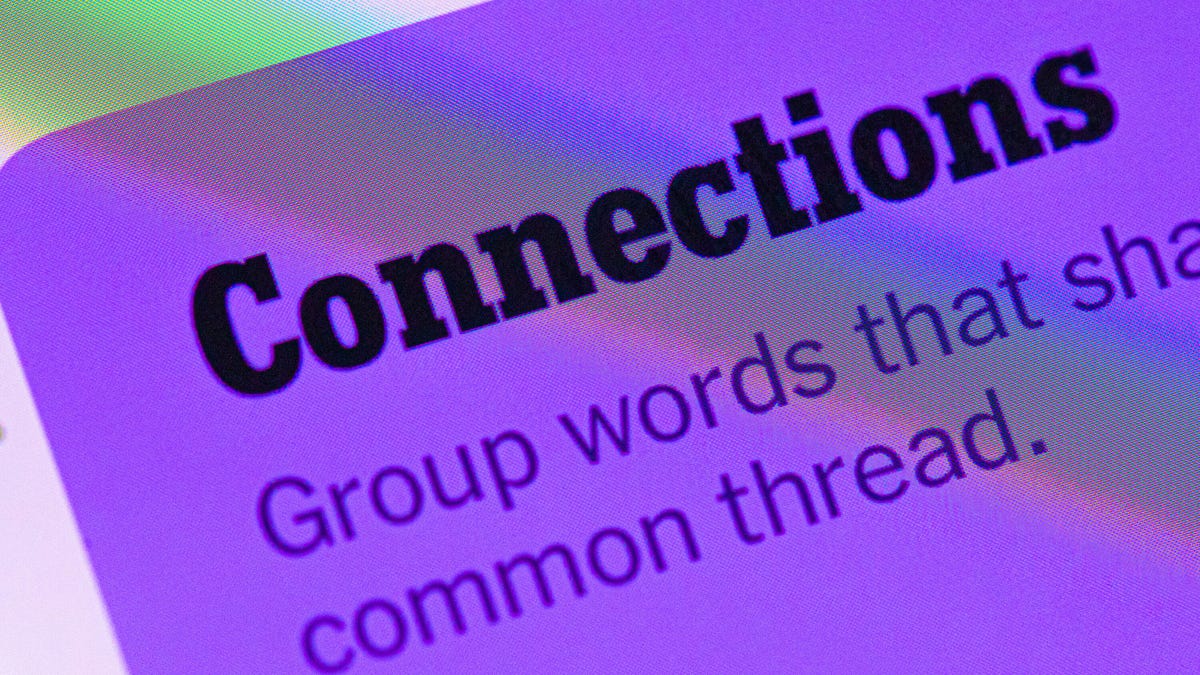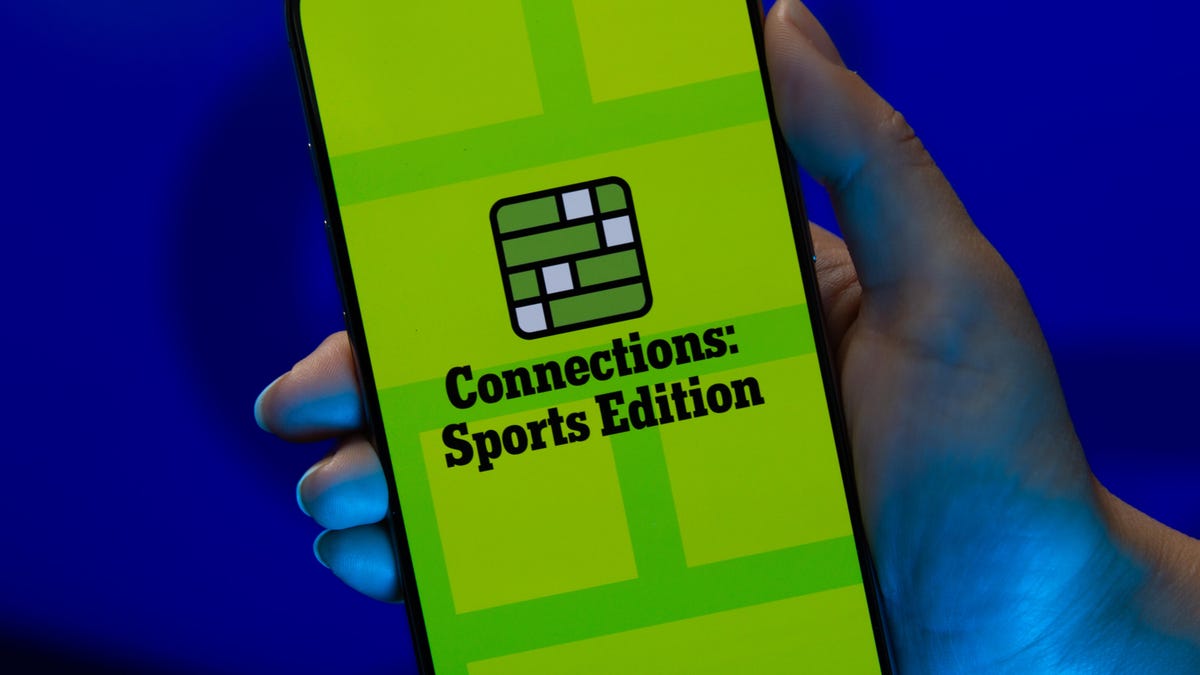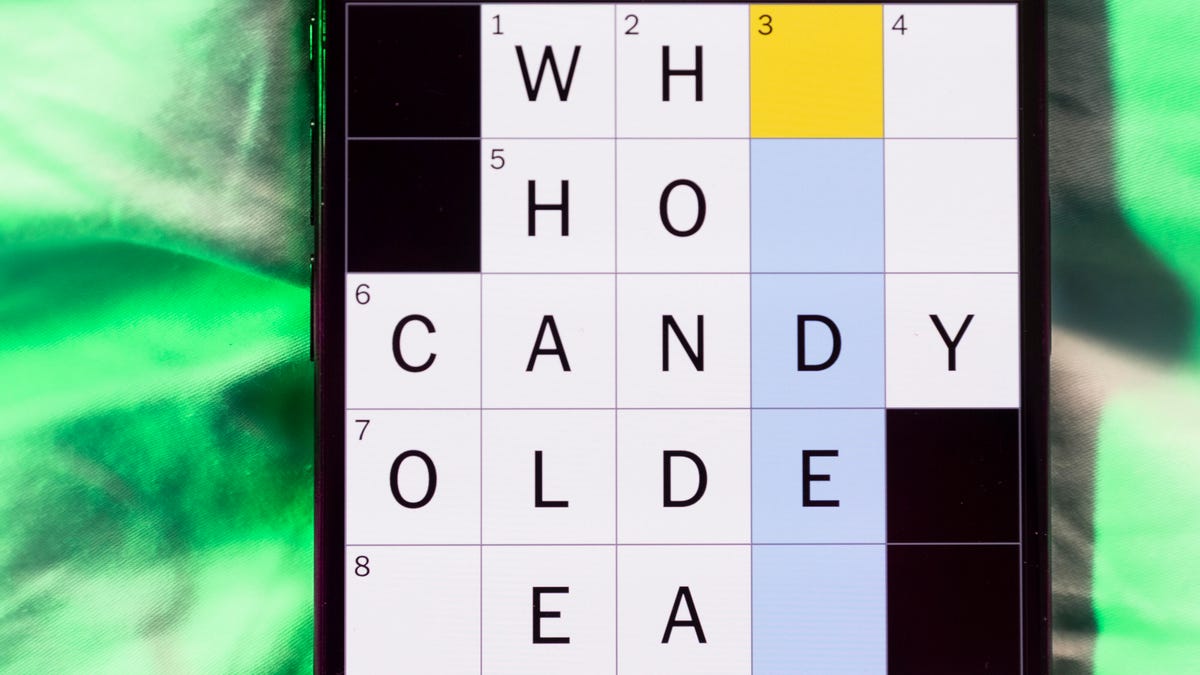Technologies
Regen-COV might work before COVID exposure, trial shows: What to know about monoclonal antibodies
Monoclonal antibodies can greatly reduce hospitalization rates in people most at risk of severe COVID-19.

Monoclonal antibody therapy for COVID-19 is available to people in the US for free who are at higher risk of severe disease in the first few days of their illness, or after they’ve been exposed to the coronavirus. The treatment — lab-made antibodies given to a person that help their immune system stop the infection from spreading — has proven to be a key tool for preventing the coronavirus from turning into severe illness. Preliminary research shows the treatment reduces risk for hospitalization or death by about 70%.
Now, early research is showing the treatment may benefit people much earlier on, before they’ve even been exposed to the coronavirus. Regeneron, one of the drug-makers of the antibody treatments, announced Monday that its drug was 81.6% effective in preventing COVID-19 in a trial period of two to eight months post-treatment. The drug in the study, which is called Regen-COV and was given to participants in a series of four injections, is the same drug as the one currently authorized for use on at-risk people who are in the early stages of COVID-19, and on some people who’ve been exposed to it.
Dr. Myron Cohen, who leads the monoclonal antibody efforts for the National Institutes of Health’s COVID Prevention Network, said in a news release Monday that the results from the drug-maker are «particularly important to those who do not respond to COVID-19 vaccines, including people who are immunocompromised.»
Regen-COV isn’t authorized yet for use in anyone who hasn’t been exposed to or is sick with COVID-19. A few monoclonal antibody therapies, including the one made by Regeneron, have emergency use authorization by the US Food and Drug Administration and should be accessible in doctors’ offices or even some state-run clinics, as seen in states such as Florida and Texas.
Importantly, monoclonal antibodies don’t replace the role of the COVID-19 vaccines in preventing hospitalization and death. According to data from August by the US Centers for Disease Control and Prevention, unvaccinated people were more than 11 times more likely to die from COVID-19 and about 6 times more likely to contract COVID-19 than fully vaccinated people.
A large number of Americans could be eligible for monoclonal antibody treatment if they test positive for COVID-19 (a smaller number would be eligible for the treatment without a positive test, and only a confirmed exposure). For example, everyone age 65 or older, people who are overweight, people with heart, liver, or kidney disease and many more would be eligible for the treatment in the early days of their symptoms.
Here’s what we know now about COVID-19 monoclonal antibodies.
What are monoclonal antibodies, and how do they work?
Monoclonal antibodies are lab-made antibodies that work by binding to bacteria, cancer cells or viruses the way natural antibodies do, stopping them from infecting more cells. The first monoclonal antibody therapy was approved more than 30 years ago and has been used for other illnesses, including the Ebola virus.
Monoclonal antibody treatments for COVID-19 are used before a person gets really sick, usually within 10 days of their first symptom, to prevent hospitalization. The treatment is only approved for people who are at risk of getting extremely sick — those who are age 65 or older and those who have «certain medical conditions,» per the FDA. The same treatment isn’t recommended for people who are already hospitalized with COVID-19.
Monoclonal antibody therapy is also authorized if an at-risk person is exposed to COVID-19, but the definition of «at-risk» in this instance, per the FDA, is a little narrower and reserved for people who are at risk because of a medical condition and unvaccinated or not fully protected by the COVID-19 vaccines because of an immunocompromising condition.
Read more: Pfizer says its COVID-19 antiviral pill reduces risk of serious illness
I tested positive. How do I know if I’m eligible?
If you come down with the coronavirus and are concerned about how the disease will affect you, contacting your doctor to learn your options and the best line of treatment for you is a good idea. But, in general, this specific treatment is reserved for people who are at risk for severe disease. Most people who are infected with COVID-19 will recover at home without medical help.
The people who test positive for COVID-19 and would be eligible or benefit from monoclonal antibody therapy may also be the same people who are eligible for COVID-19 vaccine boosters because of a medical condition. For those who are at risk of severe COVID-19 and would be eligible for monoclonal antibodies if they test positive (if they’re at least 12 years old and weigh at least 88 pounds) the FDA defines «at risk» under the EUA as:
- All people age 65 and older.
- People with obesity or those who are overweight (adults with a BMI of more than 25, and children age 12-17 who have a BMI at the 85th percentile or greater).
- Pregnant people.
- People with cancer.
- People with chronic kidney or lung disease.
- Individuals with cardiovascular disease or hypertension.
- People with diabetes.
- People with sickle cell disease.
- Those living with neurodevelopmental disorders.
- People who are immunocompromised or taking immunocompromising medication.
- Those who have a «medical-related technological dependence» (such as a tracheostomy or gastrostomy).
However, the FDA stressed in a fact sheet for Eli Lilly’s treatment (another brand of monoclonal antibodies) that this isn’t a complete list, and other medical conditions or factors including race or ethnicity may also place individuals at higher risk for severe COVID-19. It also pointed to the CDC’s list of «people with certain medical conditions» for other health conditions, which includes things such as depression and Down syndrome as being high-risk conditions.
In sum: If you test positive and feel you are at risk for severe COVID-19 and might qualify for monoclonal antibodies, you should probably speak to a health care professional about them.
Does vaccine status matter?
No, people who test positive for COVID-19 and are eligible for monoclonal antibody therapy because of their age or health condition can be treated regardless of their vaccination status. That is because, while still protective, the vaccines may be less effective at preventing severe disease in some people than others.
However, being unvaccinated might make you eligible for monoclonal antibodies after an exposure to someone with COVID-19. According to the FDA’s authorization of Regen-COV for post-exposure, people eligible for post-exposure treatment must be at risk of severe COVID-19 disease, and either unvaccinated or vaccinated but immunocompromised or taking immunocompromising medications.
I qualify. How do I access the treatment?
Monoclonal antibodies are administered by IV (most commonly) or by injection, so they’re not a prescription you can easily pick up at the pharmacy. According to CNN, the infusion process takes about an hour and patients need to wait a while to be observed for side effects. If you’re at risk for severe COVID-19 and you’ve tested positive or think you have it, ask your doctor where the treatment is available.
If you live in Texas or Florida where there are state-run monoclonal antibody treatment centers, the same eligibility requirements for patients apply. In Florida, this means everyone age 12 and older who is at «high risk for severe illness» can make an appointment and find a monoclonal treatment center at one of the state’s eight locations. In Texas, there are nine antibody infusion centers across the state, but at-risk people need a referral from their doctor.
If you think you qualify for monoclonal antibody treatment but don’t have a health care provider, you can call the Combat COVID Monoclonal Antibodies Call Center at 1-877-332-6585. You can also use this link from the US Department of Health and Human Services antibody therapy finder.
Do monoclonal antibodies interfere with the coronavirus vaccines?
If you were treated with monoclonal antibodies and you haven’t been vaccinated yet, you should wait 90 days after your treatment to make an appointment, according to the CDC. This recommendation is until more is known about how the antibody response from the treatment affects the immune response from getting vaccinated.
The information contained in this article is for educational and informational purposes only and is not intended as health or medical advice. Always consult a physician or other qualified health provider regarding any questions you may have about a medical condition or health objectives.
Technologies
Today’s NYT Connections Hints, Answers and Help for Jan. 16, #950
Here are some hints and the answers for the NYT Connections puzzle for Jan. 16 #950.

Looking for the most recent Connections answers? Click here for today’s Connections hints, as well as our daily answers and hints for The New York Times Mini Crossword, Wordle, Connections: Sports Edition and Strands puzzles.
Today’s NYT Connections puzzle has a very intriguing blue group. You’ll notice some band names, but can you locate what they have in common? Read on for clues and today’s Connections answers.
The Times has a Connections Bot, like the one for Wordle. Go there after you play to receive a numeric score and to have the program analyze your answers. Players who are registered with the Times Games section can now nerd out by following their progress, including the number of puzzles completed, win rate, number of times they nabbed a perfect score and their win streak.
Read more: Hints, Tips and Strategies to Help You Win at NYT Connections Every Time
Hints for today’s Connections groups
Here are four hints for the groupings in today’s Connections puzzle, ranked from the easiest yellow group to the tough (and sometimes bizarre) purple group.
Yellow group hint: Worn on heads.
Green group hint: Nighty-night.
Blue group hint: Bands with something alphabet-related in common.
Purple group hint: Like great.
Answers for today’s Connections groups
Yellow group: Kinds of hats.
Green group: Components of a kid’s bedtime routine.
Blue group: Musical acts with «A» as the only vowel.
Purple group: Grand ____.
Read more: Wordle Cheat Sheet: Here Are the Most Popular Letters Used in English Words
What are today’s Connections answers?
The yellow words in today’s Connections
The theme is kinds of hats. The four answers are derby, fedora, Panama and porkpie.
The green words in today’s Connections
The theme is components of a kid’s bedtime routine. The four answers are bath, brushing, pajamas and story.
The blue words in today’s Connections
The theme is musical acts with «A» as the only vowel. The four answers are Alabama, Bananarama, Kansas and Santana.
The purple words in today’s Connections
The theme is grand ____. The four answers are Bahama, Canyon, piano and slam.
Don’t miss any of our unbiased tech content and lab-based reviews. Add CNET as a preferred Google source.
Quick tips for Connections
#1: Say the clue words out loud, pausing before and after each. That helps you hear the words in the context of a phrase. The Connections editors love to group words together that are used in similar phrasing, like ____ Up.
#2: Don’t go for the obvious grouping. These editors are smart. Once, they offered SPONGE, BOB, SQUARE and PANTS in the same puzzle. None of those words were in the same category. If you like, hit the «shuffle» button to give yourself a different perspective on the words.
#3: Break down any compound words and look for similarities. «Rushmore» was once in a puzzle where the connection was that each word started with the name of a rock band.
.
Technologies
Today’s NYT Connections: Sports Edition Hints and Answers for Jan. 16, #480
Here are hints and the answers for the NYT Connections: Sports Edition puzzle for Jan. 16, No. 480.

Looking for the most recent regular Connections answers? Click here for today’s Connections hints, as well as our daily answers and hints for The New York Times Mini Crossword, Wordle and Strands puzzles.
Today’s Connections: Sports Edition is a tough one, with some odd words and bizarre categories. If you’re struggling with it but still want to solve it, read on for hints and the answers.
Connections: Sports Edition is published by The Athletic, the subscription-based sports journalism site owned by The Times. It doesn’t appear in the NYT Games app, but it does in The Athletic’s own app. Or you can play it for free online.
Read more: NYT Connections: Sports Edition Puzzle Comes Out of Beta
Hints for today’s Connections: Sports Edition groups
Here are four hints for the groupings in today’s Connections: Sports Edition puzzle, ranked from the easiest yellow group to the tough (and sometimes bizarre) purple group.
Yellow group hint: Don’t get hurt!
Green group hint: Exaggerated language.
Blue group hint: Ouch!
Purple group hint: Not northern.
Answers for today’s Connections: Sports Edition groups
Yellow group: Protective gear.
Green group: Hype.
Blue group: Sharp things.
Purple group: «Southern ____» schools.
Read more: Wordle Cheat Sheet: Here Are the Most Popular Letters Used in English Words
What are today’s Connections: Sports Edition answers?
The yellow words in today’s Connections
The theme is protective gear. The four answers are gloves, helmet, mouth guard and shoulder pads.
The green words in today’s Connections
The theme is hype. The four answers are anticipation, ballyhoo, buildup and buzz.
The blue words in today’s Connections
The theme is sharp things. The four answers are dart, hairpin turn, ice skate and javelin.
The purple words in today’s Connections
The theme is «Southern ____» schools. The four answers are California, Illinois, Methodist and Miss.
Don’t miss any of our unbiased tech content and lab-based reviews. Add CNET as a preferred Google source.
Quick tips for Connections: Sports Edition
#1: Don’t grab for the easiest group. For each word, think about other sports categories it might fit in – is this a word that can be used in football, or to describe scoring options?
#2: Second meanings are important. The puzzle loves to use last names and even college names that mean other things, to fool you into thinking they are words, not names.
#3: And the opposite is also true. Words like HURTS might seem like a regular word, but it’s also the last name of at least one pro athlete.
Technologies
Today’s NYT Mini Crossword Answers for Friday, Jan. 16
Here are the answers for The New York Times Mini Crossword for Jan. 16.

Looking for the most recent Mini Crossword answer? Click here for today’s Mini Crossword hints, as well as our daily answers and hints for The New York Times Wordle, Strands, Connections and Connections: Sports Edition puzzles.
Need some help with today’s Mini Crossword? I thought it was exceptionally tough today, and was convinced 1-Across was «MAD» Max. (Spoiler, it’s not.) I also figured 1-Down was BOOZE, which did not work with 1-Across, and was wrong either way. Read on for all the answers. And if you could use some hints and guidance for daily solving, check out our Mini Crossword tips.
If you’re looking for today’s Wordle, Connections, Connections: Sports Edition and Strands answers, you can visit CNET’s NYT puzzle hints page.
Read more: Tips and Tricks for Solving The New York Times Mini Crossword
Let’s get to those Mini Crossword clues and answers.
Mini across clues and answers
1A clue: ___ Max
Answer: HBO
4A clue: Where Marco Polo is played
Answer: POOL
5A clue: Overwhelming amount, metaphorically
Answer: FLOOD
6A clue: Reason for success in games like Candy Land and Chutes and Ladders
Answer: LUCK
7A clue: «That’s just the worst»
Answer: UGH
Mini down clues and answers
1D clue: Liquor, informally
Answer: HOOCH
2D clue: Winner of a Booker prize, fittingly
Answer: BOOK
3D clue: Antiquated
Answer: OLD
4D clue: Give a short promotion for
Answer: PLUG
5D clue: Winter malady
Answer: FLU
Don’t miss any of our unbiased tech content and lab-based reviews. Add CNET as a preferred Google source.
-

 Technologies3 года ago
Technologies3 года agoTech Companies Need to Be Held Accountable for Security, Experts Say
-

 Technologies3 года ago
Technologies3 года agoBest Handheld Game Console in 2023
-

 Technologies3 года ago
Technologies3 года agoTighten Up Your VR Game With the Best Head Straps for Quest 2
-

 Technologies4 года ago
Technologies4 года agoBlack Friday 2021: The best deals on TVs, headphones, kitchenware, and more
-

 Technologies4 года ago
Technologies4 года agoGoogle to require vaccinations as Silicon Valley rethinks return-to-office policies
-

 Technologies5 лет ago
Technologies5 лет agoVerum, Wickr and Threema: next generation secured messengers
-

 Technologies4 года ago
Technologies4 года agoOlivia Harlan Dekker for Verum Messenger
-

 Technologies4 года ago
Technologies4 года agoiPhone 13 event: How to watch Apple’s big announcement tomorrow
